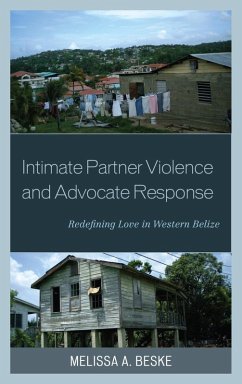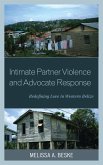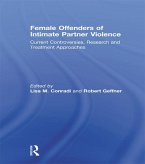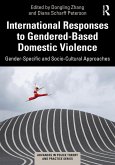Intimate Partner Violence and Advocate Response: Redefining Love in Western Belize offers new insight into the cross-cultural analysis of gender-based intimate partner violence by blending activist anthropology with in-depth ethnographic research to evaluate and help ameliorate the crisis in Belize. Drawing from twenty months of fieldwork in the Belizean Cayo District conducted between 2002 and 2013, Melissa A. Beske investigates the prevalence and complexity of partner abuse, the contributing cultural and structural factors, and the advocate dynamics across local, national, and transnational frameworks in combating the problem. Combining enlivened narratives, comparative viewpoints, and scholar-activism, this book not only illustrates the lived suffering of partner abuse in Cayo, but it also engages with the passionate commitment of survivors and supporters as they endeavor to create a more equitable and peaceful community. In doing so, it demonstrates an effective strategy for the interdisciplinary assessment of gender-based abuse, which satisfies demands for theoretical impartiality while simultaneously enabling researchers to take an ethical stand in social causes.
Bitte wählen Sie Ihr Anliegen aus.
Rechnungen
Retourenschein anfordern
Bestellstatus
Storno









